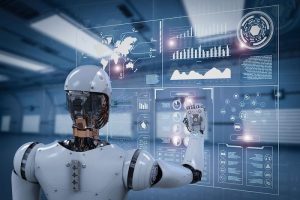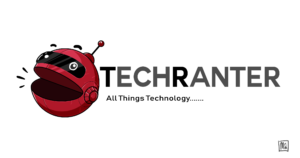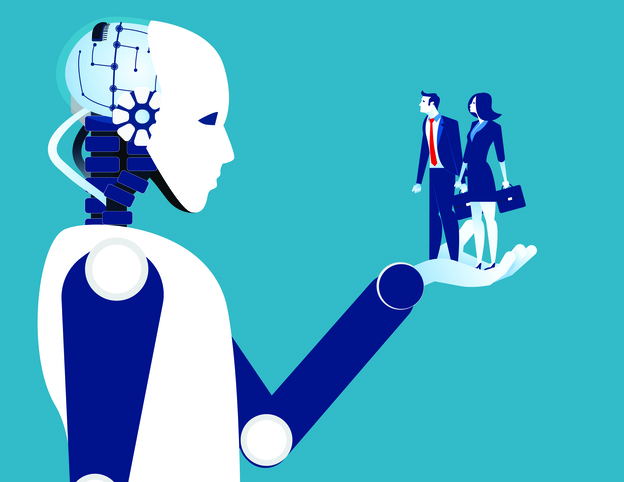It’s not new to you that AIs are now evolving these recent times. You don’t have to crack your head writing long essays and articles when an AI like ChatGPT can do so for you and that within seconds.
Artificial intelligence influences every aspect of our daily lives, from our search results to how and what we purchase online.
Data show a 270 percent increase in the use of AI in various economic sectors during the past four years.
But how will this technology impact work in the future? Research has proven the following
- By the middle of the 2030s, one-third of all jobs might be automated. (according to PwC research).
- People with low levels of education and skill-set will be the workforce group most likely to be impacted.
- AI will eliminate 85 million jobs globally by 2025 (according to the World Economic Forum’s The Future of Jobs Report 2020).
- The exact estimate also suggests that AI might create 97 million new roles.
However, the jobs that AI will create will be different from the ones that are being lost. For instance, AI is already used to automate tedious and repetitive jobs, such as data entry and processing.
As a result, work that requires abilities may be automated in the future. But shortly, it’s less probable that machines will replace vocations requiring human abilities like creativity, empathy, and problem-solving.
These positions will nevertheless be affected as AI develops.
The good news is that AI will improve these positions and raise the bar for employment that demand creativity, empathy, and problem-solving skills, opening up doors to opportunities that have never existed.
Here are a few instances of how AI is already affecting the workplace:
Increase in AI-powered Virtual Assistants like Siri and Alexa grow more sophisticated
For the past few years, advances in predictive analytics, generative AI, and AI voice assistants like Siri and Alexa have revolutionized the world.
These virtual assistants can support workers with meeting scheduling, task prioritization, and email inbox management.
Employees will have more time to concentrate on higher-value work that necessitates human abilities like creativity and problem-solving by automating these time-consuming and monotonous chores.
Read Also: The rise of wearable technology: what to expect in 2024
AIs will Aid Job Hiring Process

AI assists recruiters in selecting the top prospects for a position based on criteria like their education, work experience, and talents by evaluating data about job candidates.
In the past, searching through resumes for qualified applicants required recruiters to invest a significant amount of time. According to data from LinkedIn, hiring managers may spend up to 23 hours reviewing resumes.
The likelihood of bias and discrimination will reduce, making the hiring process more effective and efficient.
Also, AI-powered software is increasingly being used to scan resumes. 67% of hiring managers in 2018 reported that AI had simplified their work.
For instance, A new company called HireVue offered technology as part of its inaugural services that attempted to utilize facial recognition software and psychology to assess a candidate’s future performance in a particular role.
Cobots, or collaborative robots, automate risky or physically demanding jobs for people
Cobots are designed to operate alongside people. They allow humans to concentrate on tasks that call for human abilities, such as judgment and critical thought, while they operate alongside them.
A safer, more productive, and more efficient work environment is then made possible by AI.
Content writing AIs make writing less stressful
AIs like ChatGpt, Hyperwrite, Writesonic, Copy.ai, etc., generate different text forms depending on the user. This has reduced the number of hours you have to spend writing long-form text.
You must sign up and opt for their premium packages for a smooth, free writing process.
Read Also: The rise of smart wearable devices for healthcare
AI won’t replace Human Workers anytime soon
You may restate some of your concerns because it’s likely that robots won’t be taking your work anytime soon, at least not yet.
The development of this technology has sparked worries about the likelihood that humans may one day become obsolete in the workplace, given how artificial intelligence has been portrayed in the media, especially in some of our favorite science fiction movies.
After all, as technology has advanced, many occupations that required human labor in the past have been mechanized.
It seems reasonable to be concerned that the emergence of sophisticated computers could signal the beginning of the end for traditional jobs.
In a recent article titled “Artificial Intelligence And The Future of Work,” the MIT Task Force on the Work of the Future examined the advancements in AI and how they relate to the workplace. The paper presents a more optimistic scenario.
Instead of advocating the demise of human labor, the study predicts that AI will continue to inspire significant innovation that will support many existing businesses and may even have the ability to create several new growth sectors and, eventually, additional jobs.
Other Impacts of AI on Work in the nearest future
The impact of AI on the workplace has already started, and this trend will continue. While AI has the potential to automate several tasks or increase worker productivity, it also opens up new job prospects. Artificial intelligence is altering how we work, play, and live.
Businesses must be aware of these trends and modify their strategy to remain competitive and relevant.
This can entail employing new personnel with particular abilities like machine learning and data analysis or retraining current employees to operate with AI.
Businesses should also invest in training and upskilling workers to work with AI side by side.
Our focus should be humans and computers working on sophisticated systems that will advance industry and prosperity rather than humans or computers.

